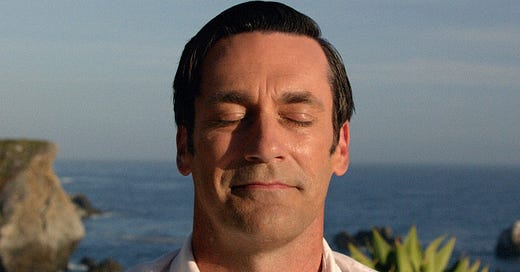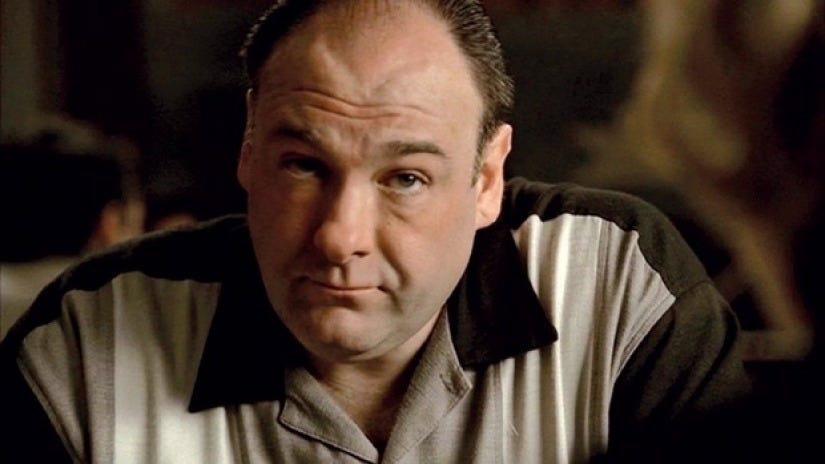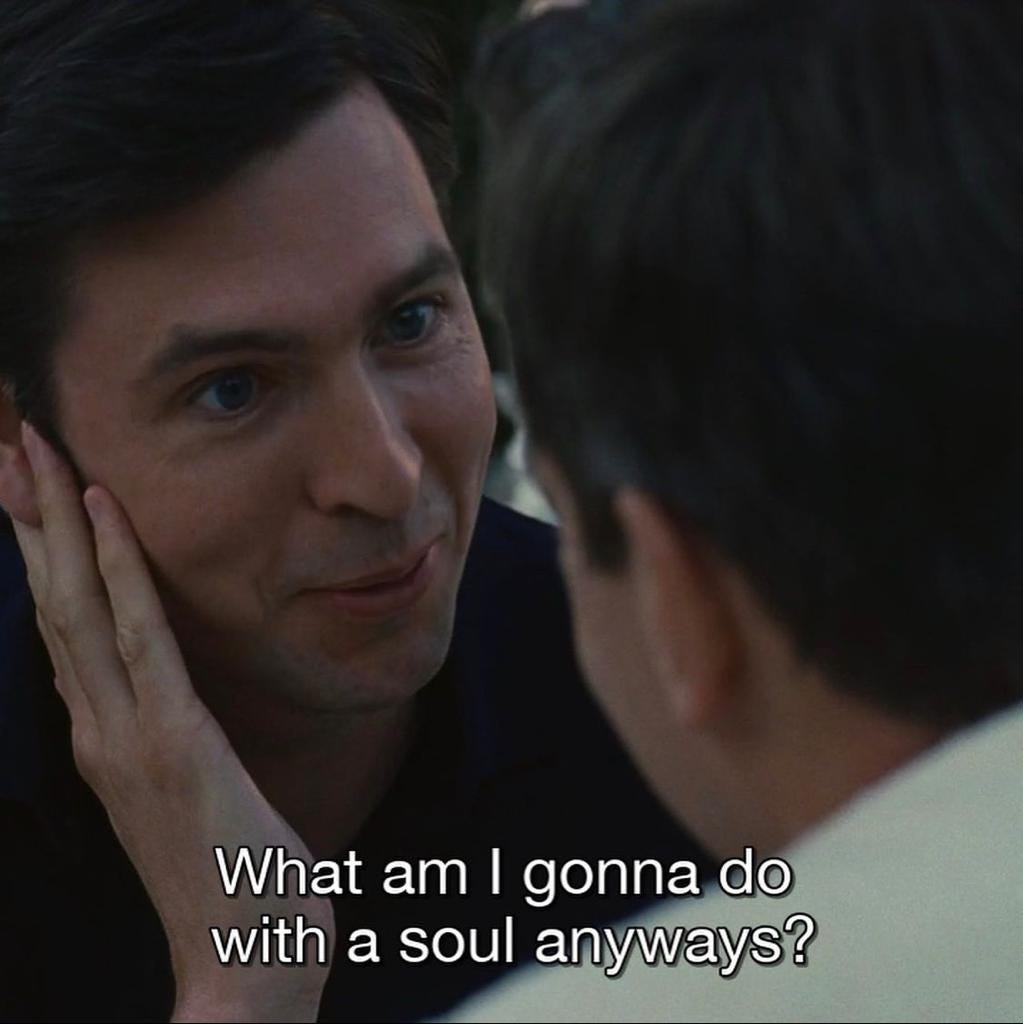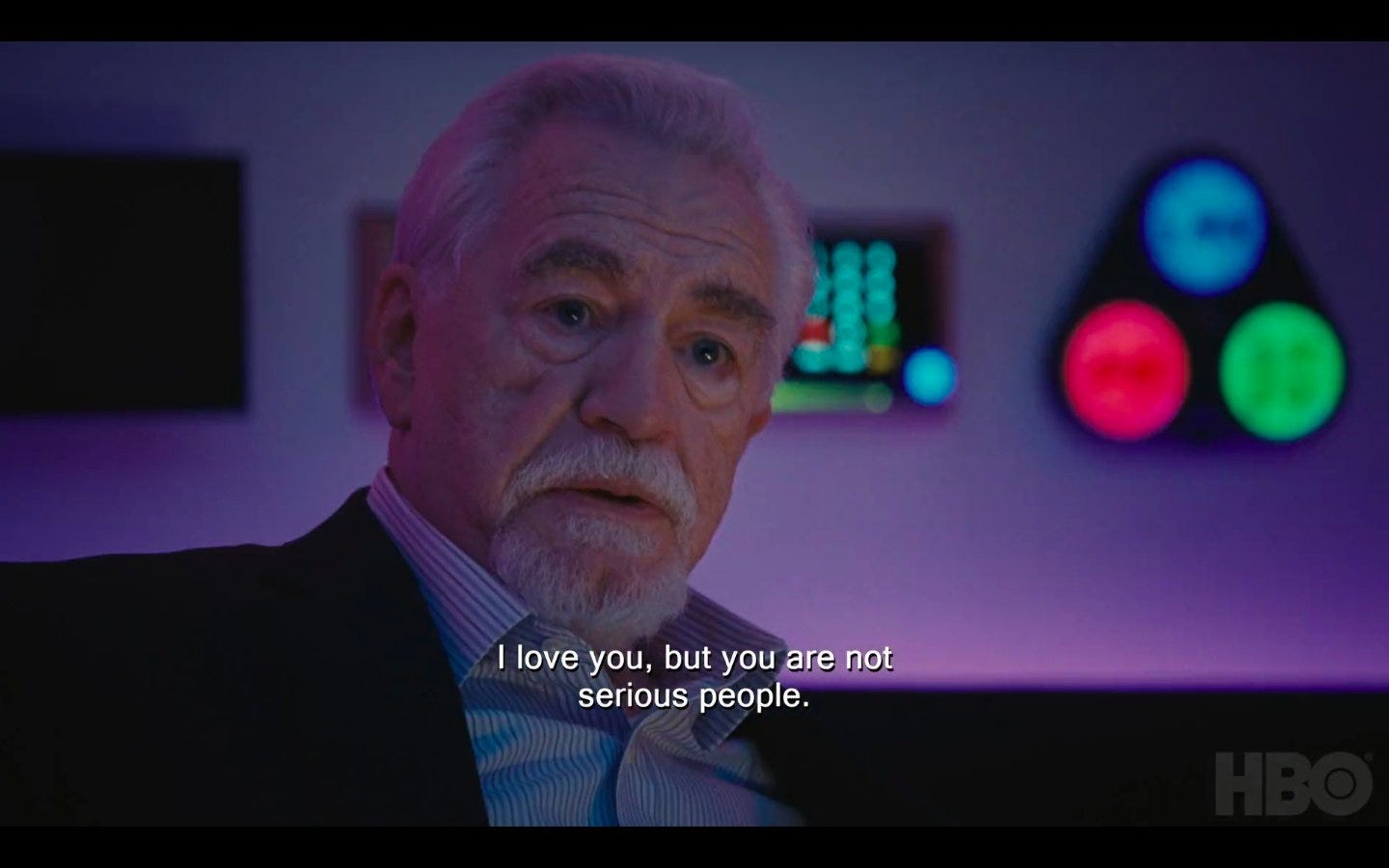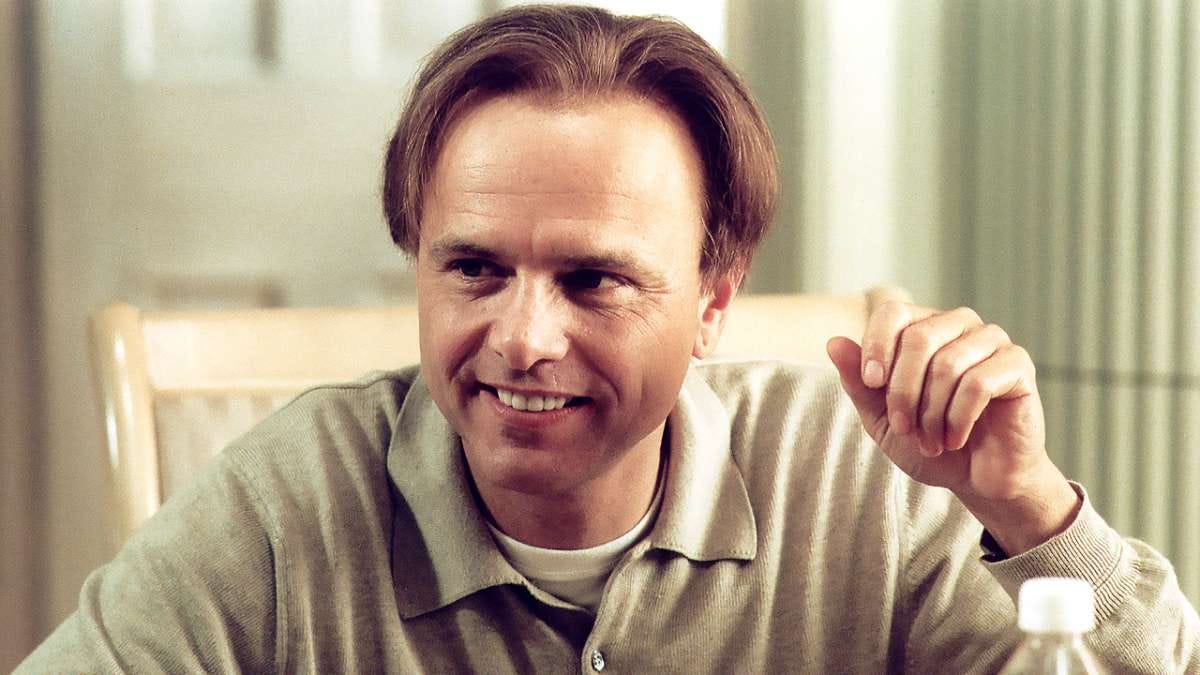It's not how you start, it's how you finish
Succession landed its ending. Game of Thrones missed horribly. The Sopranos divides opinion to this day. We should prioritise our endings as much as our beginnings.
“It's, not, how you start, it's how you finish.”
I don't enjoy songs with obvious lyrics. I prefer my lyrics on the more poetic, elliptical side. As Kurt Cobain said of his writing, "We don't mean to be really cryptic or mysterious, but I just think that lyrics that are different and weird and spacey paint a nice picture". There, as ever, exceptions to this tendency. One of them being the song the opening quote comes from - Ali In The Jungle, by The Hours.
It's pretty much as far away from "weird and spacey" as you can get as a song; big, bold sloganeering (that is great to run to, incidentally). A great song from a great album by a band that was probably a bit over-hyped to ever make it big. Having Damien Hirst do all their artwork didn't help in this regard.
Like many people, endings have been on my mind this week as Succession reached its final denouement. I don't know if we've always obsessed about how TV shows finish, but endings have become significant moments over the past 15 years. As with so many other things in TV, The Sopranos kicked off this obsession - the now iconic cut to black left us with more questions than answers. Even now, having watched the whole show many times over, expecting the ending, it hits hard. It's brutal, like Tony himself. No messing around, no "I'll get your money next week". These are serious people.
Our brains are hardwired to enjoy resolution. Cole Kuchna, author and presenter of the Dissect podcast, often talks about musical progressions that resolve - they feel good to listen to (as opposed to more dissonant music). But resolving a TV show with multiple seasons and hundreds of episodes seems challenging. Six Feet Under did it well - I remember crying as, fittingly for a show about death, you see each main character meet their ends in different circumstances.
Game of Thrones (I'm sure you knew this was coming) failed its landing for many reasons, but principally for me, it was striving too hard for resolution and completion. Trying to be the antithesis of The Sopranos, it attempted to wrap up its many storylines and character arcs with too neat a bow. As Zeynep Tufecki wrote at the time, one of the reasons people loved GOT was its "willingness to kill off major characters, early and often, without losing the thread of the story". GOT set the bar for brutally removing our heroes and anti-heroes from its world. This tendency is the antithesis of a neat resolution, playing a big part in why many people felt the final episodes, and the ending in particular represented a significant downturn in quality. Larry David refused to have any "hugging and learning" in Seinfeld; GOT declined to have any "living happily ever after". The ending reneged on this promise.
So it was, with these memories of endings landed and endings misjudged, that I tuned into the finale of Succession this week. Part of me wanted that natural, primal feeling of resolution and harmony. And an equally prominent part of me feared it, knowing that any form of "hugging and learning" couldn't be further from what Succession is about. But really, I shouldn't have worried. As Stuart Heritage predicted in The Guardian, "Jesse Armstrong is too smart to give us something as straightforward as this".
[If you're watching Succession and don't want any spoilers, I'd probably skip this next paragraph and start again after Logan Roy].
Jesse Armstrong served up a finale that contained just the right balance of resolution with future possibilities, all coloured by the bleak, cynical, unvarnished view of the modern world that has been Succession's signature over the past five years. We've seen into the dark heart of power in the US, a heart that has eschewed any pretension of love or loyalty and has no time for any pretensions of purpose. There is only power and the pursuit of power. And those who win are those, in the words of the man who embodies this dark heart more than anyone, are "serious people", "killers". And at the end, of Logan's offspring, only Shiv realised that - as she sides with the ultimate power weasel, husband Tom, over her brothers. It was a stone-cold move in keeping with a stone-cold ending - and note-perfect, as far as I'm concerned.
I admire anyone who can think of an ending for these epic, multi-layered, multi-season TV shows (even David Benioff and DB Weiss, as they were pretty much left high and dry by George RR Martin's writer's block.)
I find it a struggle to finish the articles I write every week. But luckily for me, I don't work in an industry that does endings.
Of course, your proposals and pitch decks end, and they need to resolve in the musical sense - no one wants to be left on the dissonant notes. But there's always a next step to take - you want to win that work and get started on the project. Our endings don't carry the weight or finality of The Sopranos or Succession. When pitching for new name business, we hope our pilot will get commissioned into an entire season. For existing clients, we're looking to get renewed for another season. We might be pitching an idea that further develops an existing narrative or going for a dose of reinvigoration or reset. Killing off Richie Aprile before introducing Ralph Cifaretto to wreak havoc on our plans.
Repitches are the comms equivalent of a full-scale reboot - tough to pull off successfully; much more common to see the show quietly sunsetted in favour of something completely different.
The other big difference between dramatic endings and our work in comms and marketing is that we have calls to action to include. Our endings are the equivalent of those "next time on The Sopranos" stings you used to see on linear TV. We want our viewers to click here, buy now, sign-up for more - to complete some trackable action to help us measure the impact of our campaign. You can see the influence of this CTA mentality in the template Lost set this out for TV in the noughties - meander around reasonably aimlessly for 40 minutes before packing all the action into the last five minutes, delighting and infuriating your viewer in equal parts, and ensuring they tune in next week - the ultimate dramatic CTA.
Of course, I ignored the genuinely big difference between TV shows and marketing communication in the last paragraph - people actually enjoy watching TV. They don't give a damn about marketing communications. We put the majority of our time and energy into starting strong, grabbing attention, and standing out - and that's the same whether pitching or in our work. We spend less time on the CTA because so few people get there. When pitching, we leave all the admin to the end - the budget, the timeline, and the KPIs. By that point, your audiences want to get on to the next thing - whether back to the show or article they were enjoying or into the Q&A section so they can ask, "Can we really take a picture of a giant light show from out of space?" (genuine question from a pitch I was involved in).
For The Sopranos and Succession, the endings are the end. In comms, the end is generally the beginning of something else. That's probably why I think the conclusion of Mad Men is up there with Sopranos and Succession as one of the most successful endings to a show. We get those warm, pleasant, melodic resolving notes around the supporting characters. But Don Draper isn't finished; he's found his next chapter - he's going back to McCann to pitch Coca-Cola "I'd like to buy the world a Coke". The best show about advertising understands that advertising never ends - it's always getting ready for its next iteration.
Maybe the reason "Ali In The Jungle" is still a favourite song is that there is depth to the lyrics - that actually, it's all in the "how" you finish. And you finish strongly by understanding what people wanted when they started with you in the first place.
I loved Succession because everyone (even Cousin Greg, sob) was utterly deplorable. And the ending gives us that and plenty more.
Clients want killer ideas from people who are a pleasure to work with, so make sure they remember your idea and get to know you in the room (i.e. don't end on the budget).
You read this email because you're interested in the latest trends through a communication lens; I'm here to tell you to make your endings more Succession and less Game of Thrones.
